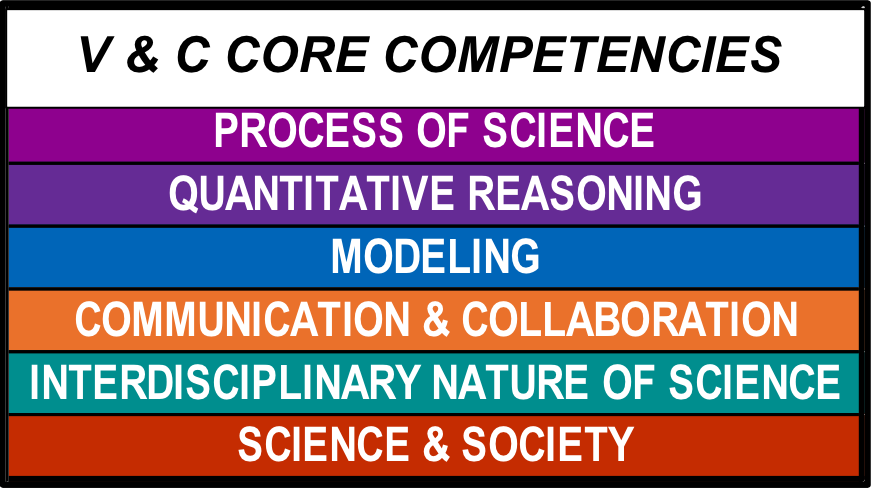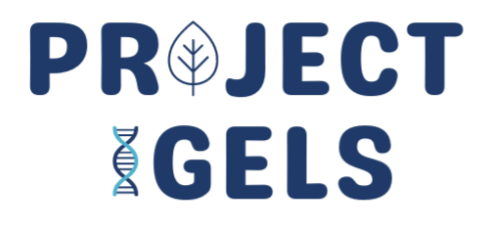IMPROVEMENT OF GENERAL EDUCATION LIFE SCIENCE COURSES (IGELS)
Mission Statement Major Goals Contact Information Download Abstract

The COVID-19 crisis, and the often contradictory and misleading science-related information distributed during the pandemic, demonstrates the need for the general public to understand basic biological concepts, how science is conducted, and in what ways science is relevant and important to their lives. A decade ago, the seminal publication, “Vision and Change: A Call to Action” (AAAS, 2011), articulated that undergraduate biology education in the United States needed to undergo a substantial overhaul to improve the quality of undergraduate biology education for all students. Yet, it is unclear just how deeply Vision and Change permeated the undergraduate biology community and what its national impact has been on education reform across institutions and types of courses. One area of major interest is General Education Biology courses, those courses that are often referred to as the ‘non-majors’ classes. Students who are not science majors, but who pass through introductory-level life science courses as part of their undergraduate experience, constitute a huge percentage of the future general public. These students, and the faculty that facilitate their learning, will be the focus of this project. These non-majors’ courses may be the only exposure to biology and biologists that many undergraduate students will have.
This project will leverage the national effort, Improvement of General Education Life Science courses (IGELS), that was organized in late 2020. IGELS is comprised of multiple scientists and science educators who teach in, conduct research about, and/or provide professional development for General Education Life Science (GELS) instructors. The IGELS Steering Committee proposes to:
- survey current instructors of GELS courses across the U.S. to determine the level of their knowledge and implementation of the V&C principles;
- use the collected information to create a BioLifeSkills guide that can serve as a framework for course revision and a template for tailored professional development and mentoring activities for GELS faculty that reflect relevant aspects of V&C;
- expand the activities of the national IGELS network, a coalition of individuals and groups to discuss and resolve issues related to GELS courses and to assist faculty teaching GELS courses; and
- modify useful existing curricular resources and develop a framework of core skills and essential concepts for GELS students to promote scientific literacy.
We will focus on improving students’ abilities to reason with evidence, and on increasing the relevancy of the courses to students. This project will impact several hundred instructors of introductory general education biology courses and thousands of students, however, the groundwork for building sustained professional development, producing a useful curriculum framework, and facilitating future collaborations will greatly multiply the number of those who benefit. IGELS will use its connections with a diverse community of faculty to identify the best ways to promote evidence- based teaching and learning methods for GELS courses that form an infrastructure of equity and inclusion. IGELS work will focus on exemplary programs that improve the relevance of course materials, increase student interest and retention, and promote metacognitive strategies for all students to improve self-efficacy and learning. For GELS students with an interest in science and biology but, for whatever reason, have not chosen Biology as a major, this project also may help them find their sole introduction to Biology as a first step in an alternative path into STEM-related careers. This project is funded by the NSF Program Description 21-7412, Vision and Change in Undergraduate Biology Education.

IGELS MISSION STATEMENT
The national network for the Improvement of General Education Life Science Courses (IGELS) is a coalition of biologists and biology educators collaborating to support and mentor “non-major biology” instructors. IGELS promotes the use of evidence-based and equity and inclusive teaching and learning methods in order to develop STEM-ready, scientifically literate students who understand the nature of science; who possess metacognitive, critical thinking, and science process skills; who can apply essential content and evidence-based reasoning to their lives; and who demonstrate civic responsibility as stakeholders in their community.
IGELS MAJOR GOALS
- Assess awareness and implementation of V&C principles by instructors teaching GELS courses. Develop a survey for instructors of General Education courses across the U.S.
- Investigate targeted research questions in order to facilitate adoption and adaptation of V&C principles in GELS courses.
- Identify, review, and modify existing educational resources that address V&C principles, and facilitate their implementation in GELS courses to promote science literacy, science process skills, civic engagement, and application of essential knowledge.
- Facilitate adoption of V&C in GELS courses through Professional Development and Faculty Mentoring.
- Facilitate adoption of V&C in GELS courses by improving equity and inclusive teaching and learning.
- Facilitate sustainable and long-term impact of V&C in GELS courses by creating a collaborative network.
- Develop a BioLifeSkills Guide for instructors of GELS courses.
- Develop IGELS Working Groups that will inform and contribute to entire project:
- Faculty Professional Development—create PD workshop model for regional workshops;
- Curriculum Resources—identify and modify appropriate resources;
- Equity & Inclusive Teaching and Learning;
- Online Presence & Networking;
- Program & Course Outcomes;
- Assessment

Contact Information
For more information or to become involved in the project, please contact: Gordon Uno (guno@ou.edu) University of Oklahoma
IGELS Twitter: @projectigels
